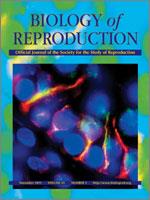Our group found that the treatment of embryos with histone deacetylase inhibitors (HDACi), including trichostatin A, Scriptaid, suberoylanilide hydroxamic acid, and oxamflatin, after cloning by somatic cell nuclear transfer (SCNT) resulted in significantly improved efficiency. Although many researchers have investigated the use of HDACi treatment to improve the quality of cloned mouse embryos, the mechanism underlying this treatment has not been completely understood. We believe that the effect of HDACi on embryonic gene activation (EGA) is important for normal development of cloned embryos. In the present study, using highly sensitive fluorescence in situ hybridization (FISH) with probes complementary to mouse rDNA, the effect of Scriptaid on the onset of rRNA synthesis was examined in cloned embryos. In addition, to determine how Scriptaid affects pre-rRNA processing machinery in SCNT embryos with activated rDNA transcription, functional nucleolar formation was analyzed in detail by combined assessment of rRNA synthesis and nucleolar protein allocation in preimplantation embryos. In this experiment, at least part of the rRNA localization by FISH was substituted by 5-bromouridine 5′-triphosphate staining after alpha-amanitin treatment. The results show that in the late 2-cell stage, a number of SCNT embryos initiated transcriptional activation while having one blastomere showing inactivated rRNA transcription and another blastomere showing activated rRNA transcription and despite both nuclei being in interphase. In addition, in some SCNT embryos, the same nuclei contained a mixture of inactively and actively transcribed rRNA, which was rarely observed in intracytoplasmic sperm injection embryos. This asynchronous transcription induced a delay of one cell cycle in SCNT embryo activation of functional nucleoli. Scriptaid can overcome this failure in the timely onset of embryonic gene transcription by activation of rRNA genes and promotion of nucleolar protein allocation during the early phase of EGA.
How to translate text using browser tools
13 July 2011
Histone Deacetylase Inhibition Improves Activation of Ribosomal RNA Genes and Embryonic Nucleolar Reprogramming in Cloned Mouse Embryos
Hong-Thuy Bui,
Hyeon-Jeong Seo,
Mi-Rung Park,
Jong-Yi Park,
Nguyen Van Thuan,
Teruhiko Wakayama,
Jin-Hoi Kim
ACCESS THE FULL ARTICLE

Biology of Reproduction
Vol. 85 • No. 5
November 2011
Vol. 85 • No. 5
November 2011
assisted reproductive technology
cloned embryos
developmental biology
early development
HDACi




